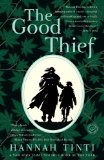Summary | Excerpt | Reading Guide | Reviews | Beyond the Book | Readalikes | Genres & Themes | Author Bio

A Novel
by Hannah Tinti
Catholics were rare in this part of New England. A local Irishman who’d made a fortune pressing cheap grapes into strong port had left his vineyard to the church in a desperate bid for heaven before he died. The brothers of Saint Anthony were sent to claim the land and build the monastery. They found themselves surrounded by Protestants, who, in the first month of their arrival, burned down the barn, fouled the well, and caught two brothers after dark on the road and sent them home tarred and feathered.
After praying for guidance, the brothers turned to the Irishman’s winepress, which was still intact and on the grounds. Plants were sent from Italy, and after some trial and error the brothers matched the right vine with their stony New England soil. Before long Saint Anthony’s became well-known for their particular vintage, which they aged in old wooden casks and used for their morning and evening masses. The unconsecrated wine was sold to the local taverns and also to individual landowners, who sent their servants to collect the bottles in the night so that their neighbors would not see them doing business with Catholics.
Soon after this the first child was left. Brother Joseph heard cries one morning before sunrise and opened the door to find a baby wrapped in a soiled dress. The second child was left in a bucket near the well. The third in a basket by the outhouse. Girls were collected every few months by the Sisters of Charity, who worked in a hospital some distance away. What happened to them, no one knew, but the boys were left at Saint Anthony’s, and before long the monastery had turned into a de facto orphanage for the bastard children of the local townspeople, who still occasionally tried to burn the place to the ground.
To control these attempts at arson, the brothers built a high brick wall around the property, which sloped and towered like a fortress along the road. At the bottom of the wooden gate that served as the entrance they cut a small swinging door, and it was through this tiny opening that the babies were pushed. Ren was told that he, too, had been pushed through this gate and found the following morning, covered in mud in the prior’s garden. It had rained the night before, and although Ren had no memory of the storm, he often wondered why he had been left in bad weather. It always led to the same conclusion: that whoever had dropped him off could not wait to be rid of him.
The gate was hinged to open one way—in. When Ren pushed at the tiny door with his finger, he could feel the strength of the wooden frame behind it. There was no handle on the children’s side, no groove to lift from underneath. The wood was heavy, thick, and old—a fine piece of oak planed years before from the woods beyond the orphanage. Ren liked to imagine he felt a pressure in return, a mother reaching back through, changing her mind, groping wildly, a thin white arm.
•••
Underneath Saint Anthony’s statue the younger boys fidgeted and pushed, the older ones cleared their throats nervously. Brother Joseph walked down the line and straightened their clothes, or spit on his hand and scrubbed their faces, bumping his large stomach into the children who had fallen out of place. He pushed it now toward a six-year-old who had suddenly sprung a bloody nose from the excitement.
“Hide it quick,” he said, shielding the boy with his body. Across the yard Father John was solemnly approaching, and behind him was the man who had kissed the horse.
He was a farmer. Perhaps forty years old. His shoulders were strong, his fingers thick with calluses, his skin the color of rawhide from the sun. There was a rash of brown spots across his forehead and the backs of his hands. His face was not unkind, and his coat was clean, his shirt pressed white, his collar tight against his neck. A woman had dressed him. So there would be a wife. A mother.
Excerpted from The Good Thief by Hannah Tinti Copyright © 2008 by Hannah Tinti. Excerpted by permission of The Dial Press, a division of Random House, Inc. All rights reserved. No part of this excerpt may be reproduced or reprinted without permission in writing from the publisher.
Harvard is the storehouse of knowledge because the freshmen bring so much in and the graduates take so little out.
Click Here to find out who said this, as well as discovering other famous literary quotes!
Your guide toexceptional books
BookBrowse seeks out and recommends the best in contemporary fiction and nonfiction—books that not only engage and entertain but also deepen our understanding of ourselves and the world around us.